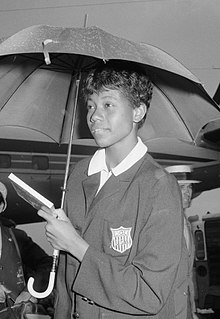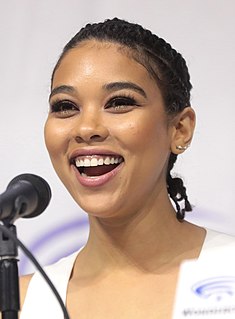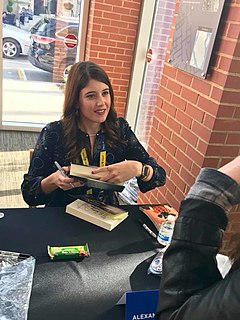A Quote by Gina Prince-Bythewood
A Different World was run by black women, Debbie Allen and Yvette Lee Bowser. Lead writer Susie Fales-Hill was a hero of mine, because she was 28 when she was running one of the top shows on television. Going to work every day and seeing black women in charge made that normal to me.
Related Quotes
There are many things that black women can continue to do to help black folk. First, black women have historically been among the most vocal advocates for equality in our community. We must take full advantage of such courage by continuing to combat the sexism in our communities. Black women, whether in church, or hip-hop, don't receive their just due. Second, when black women are in charge of child-rearing, they must make ever so sure to raise black children who respect both men and women, and who root out the malevolent beliefs about women that shatter our culture.
The act of me just being robust in the world is so radical - it's so radical for a black woman to think she's going to be a star, because it takes so much to get there. It's still a battle every day, but I feel happy because I feel like I cracked the code and figured out how to work through it. Now I want to give the map to other women.
That's why Serena Williams is such a hero for me, because she's got such incredible swagger, and it's earned, and she can teach us that it is a good thing. The fact that she has been denigrated and called cocky - I mean, she's the best in the world! I hope my work can inspire other women to have that swagger and believe that they can have it all.
Aaliyah revolutionized what it was to be a young black woman in America. She made it OK to be a nerd and to be a tomboy. She made it OK to wear leather and chains. She was the first black girl with an ombre. She was so far ahead of everything and everyone. It was just who she was. She was an innovator, but she didn't even realize it.
To her credit, Madam Walker discerned that black women wanted to conform to white Victorian models of beauty. She was aware of the double- sidedness of her products - helping black women appear more European in look, with straight hair - but she always maintained that she was simply selling products that promoted hair growth.




































